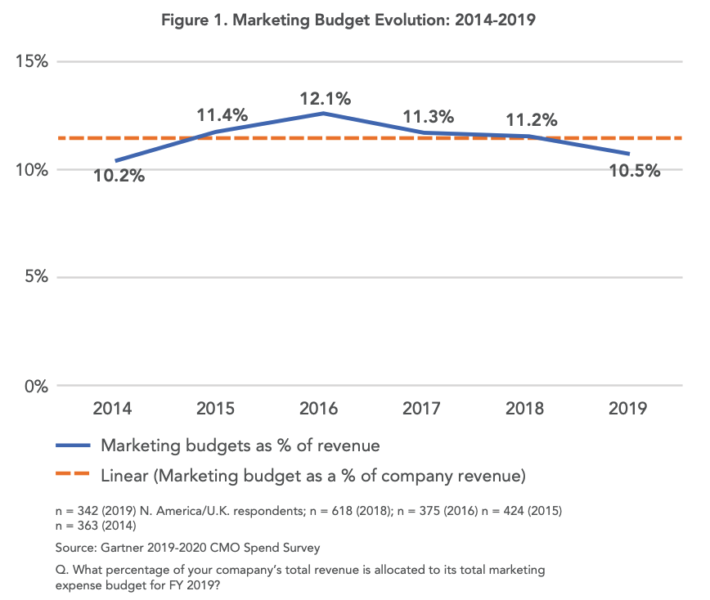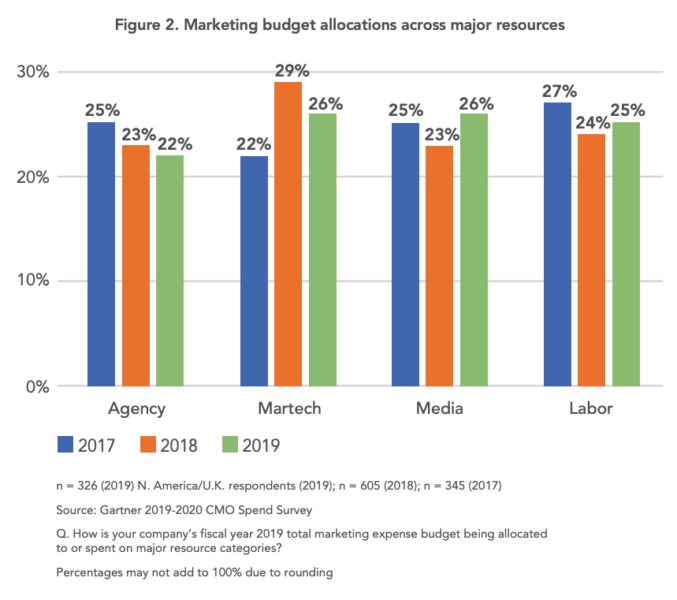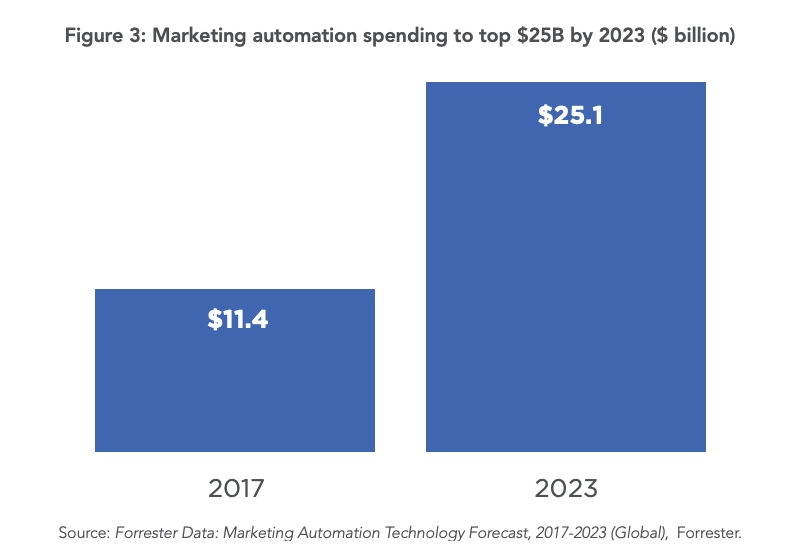Why B2B marketing automation, and martech in general, are still key
As the customer experience bar keeps being raised, marketing automation can help brands differentiate themselves with relevant messaging.
Investments in marketing technology continue to be a priority for businesses across the board, as they strive to meet increased demands for personalization and a need to collect, authenticate and analyze rapidly increasing amounts of consumer data to improve the customer experience (CX).
Overall marketing budgets dipped slightly to 10.5% of company revenue in 2019 as compared to 2018, as CMOs and VPs of marketing operations continue to focus on ROI and efficiency, according to Gartner’s annual CMO Survey for 2019-2020. Still, optimism for 2020 was high at the time of the survey, with 88% of CMOs stating they believed the future impact of the global economic environment would be positive, with more than half (53%) believing the impact will be strong.

The advent of COVID-19 wasn’t foreseen at the time of the survey, however, and it has already had a significant economic impact globally. That said, it remains to be seen how long the impact of the novel coronavirus will dominate headlines and mindshare, as containment or other factors could bring worry down to the level we see with the seasonal flu.
Digital marketing — which has the ability to reach remote workers and the self-quarantined — could benefit in the short term as people seek alternatives to in-person meetings and conferences. However, a general economic slowdown and continued uncertainty will certainly negatively impact businesses in general.

Martech still a budget priority
Though the proportion of the overall marketing budget going to marketing technology in 2019 slipped to 26%, as compared to 29% in 2019, martech continues to overshadow other areas of spending. Only media spending equaled martech investments, with labor costs (25%) and agency budgets (22%) attracting smaller amounts.

Global marketing automation spending is projected to reach $25.1 billion by 2023, up from $11.4 billion in 2017, representing an implied annual growth rate of 14%, according to Forrester’s Marketing Automation Technology Forecast, 2017-2023 (Global), published in April 2018.
Get answers to all your questions about B2B Marketing Automation Platforms. Download our in-depth buyer’s guide now!
Related stories
